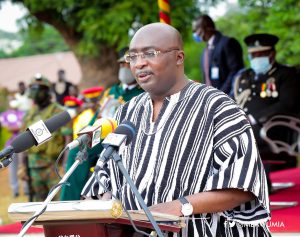A Memorandum of Understanding (BoG) for the early recapitalization of the Bank of Ghana (BoG) is expected to be signed by the end of the third quarter of this year following the Central Bank’s significant losses for two consecutive years.
The MoU is a strategic move to help restore the financial health of the central bank and drive its positive equity position after it posted a GHS 10.5 billion loss in 2023 due to high expenditure related to monetary interventions and a GHS 60.9 billion loss in 2022 over impairments during the domestic debt exchange program.
The Ministry of Finance and the Bank of Ghana will sign the MoU to ensure that the Central Bank can continue with its mandate of managing monetary policy and ensuring price stability.
The recapitalization plan will look at the capital required, the timeline for recapitalization and more importantly, the sources of funding.
This early recapitalization will boost the central bank’s activities operation on the domestic and international front.
This will be done alongside other measures and strict adherence to the agreement of the BoG’s zero financing of the government’s budget signed in April 2023.
The recapitalization has already been discussed by the two parties and the IMF after an assessment of the impact of the DDEP on the Bank’s balance sheet.
Unlike what happened in 2022, this fresh GHS 10.5 billion loss was because of the Bank’s open market operations which sought to control inflation.
This means the bank incurred a lot more of expenses in mopping out excess liquidity in the economy to ensure that it does not push up demand for forex for goods and services.
This is typically done by issuing BOG bills. Commercial banks will buy these securities after which the Bank of Ghana will pay its monetary policy rate as interest upon maturity.
Had this not been done, the Bank says, inflation would have gone up more than anticipated. Despite, this loss the Bank of Ghana says it remains policy solvent.





